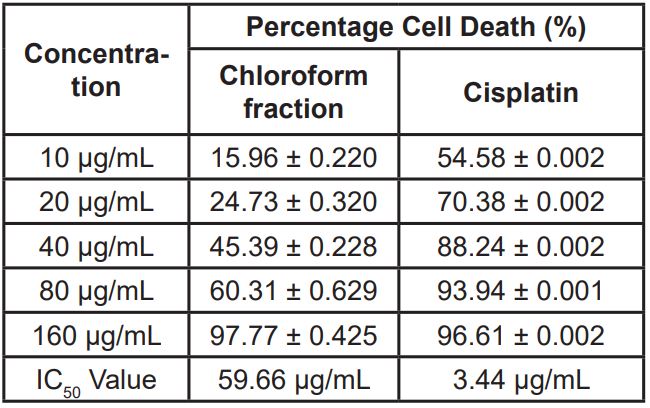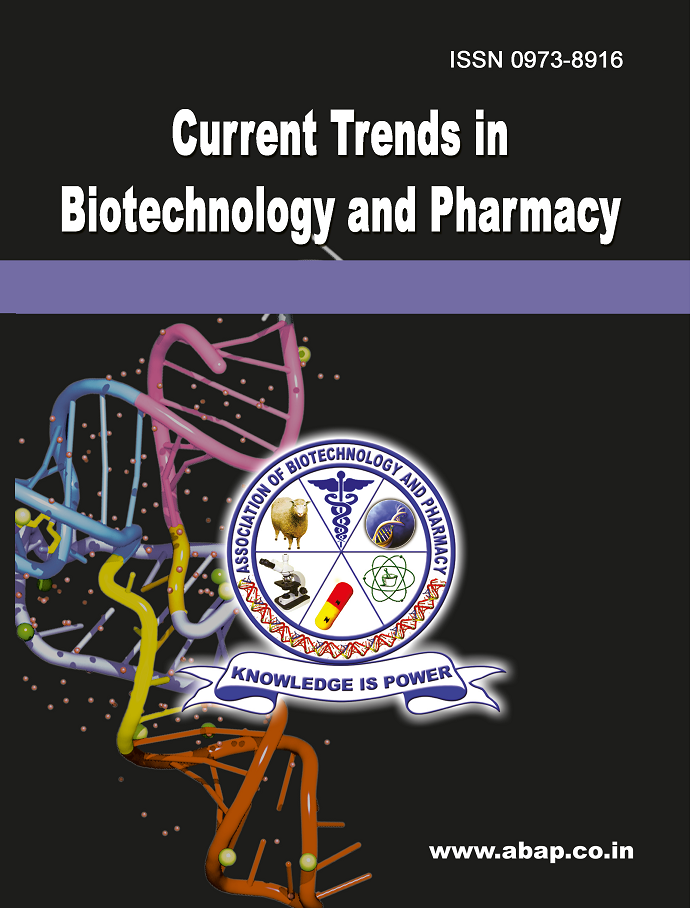In-vitro Antioxidant and Cytotoxic Effects of Physalis minima Linn. in HeLa Cell Lines Against Cervical Cancer
DOI:
https://doi.org/10.5530/ctbp.2024.1.6Keywords:
Cervical cancer, HeLa, Physalis minima, chloroform fractionAbstract
In the present study, the shade-dried and powdered leaves of Physalis minima Linn. were subjected to Soxhlet extraction with methanol, concentrated, and further partitioned with n-hexane, chloroform, and ethanol. The in-vitro anti-oxidant activity was evaluated by DPPH radical scavenging assay and the cytotoxic potential by MTT assay in HeLa cell lines. The results of the study revealed that among the three fractions, the chloroform fraction of the methanolic extract showed better antioxidant activity (IC50 = 38.6 µg/mL) compared to standard Ascorbic acid (IC50 = 42.6 µg/mL). Moreover, the results of the MTT assay carried out in HeLa cell lines showed that the chloroform fraction exhibited a promising cytotoxic activity (IC50 = 59.66 µg/mL). Further, the chloroform fraction when subjected to apoptosis assay using acridine orange -ethidium bromide dual staining displayed the morphological characteristics of apoptotic event including nuclear fragmentation and chromatin condensation with orange red and reddish nuclei. The results of our study support the protective effect of chloroform fraction of methanolic extract of leaves of Physalis minima Linn., in the treatment of cervical cancer.



